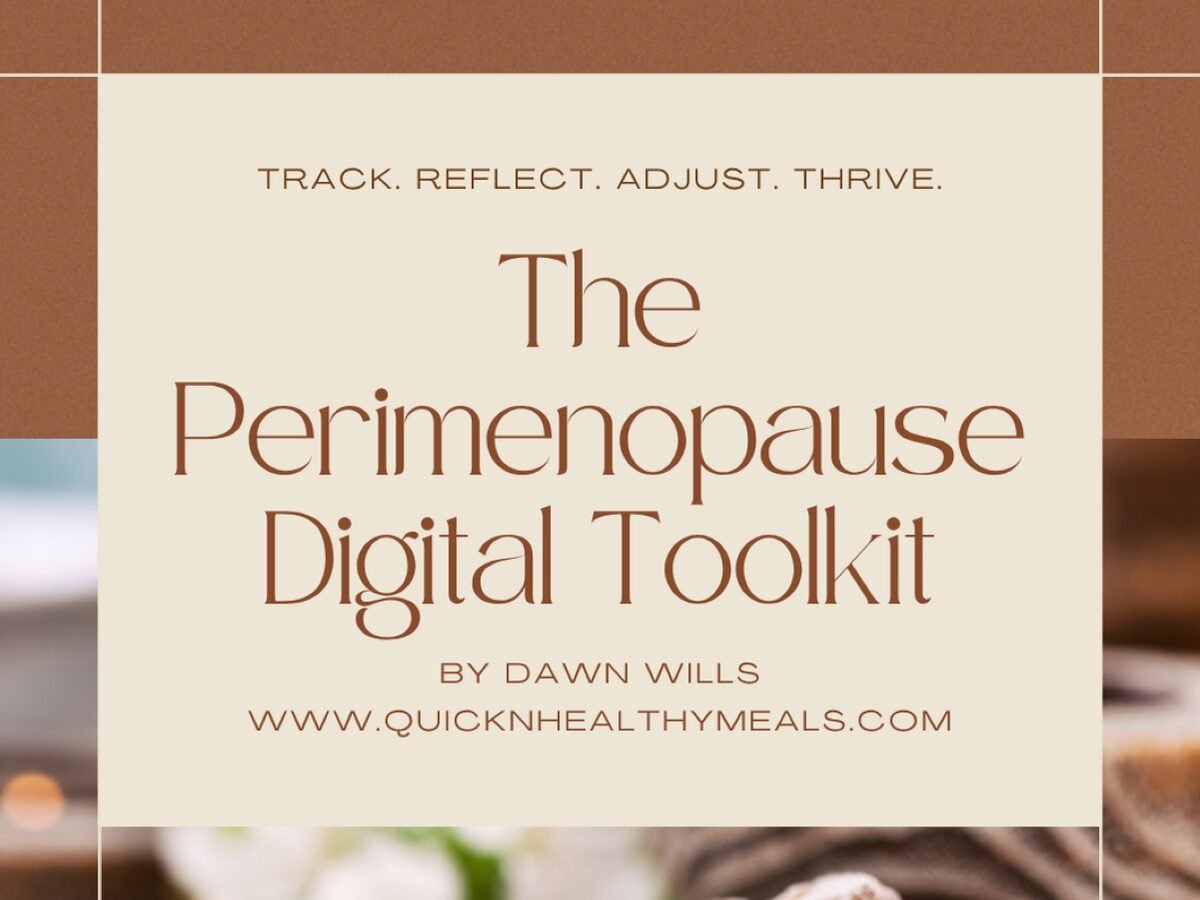This post may contain affiliate links. Please read my disclaimer for more information.
I wish someone had warned me about perimenopause, especially the joint pain. One day I was walking normally, and the next I could barely take a few steps without wincing. I wish I knew that my body odor would change, or that I’d start getting frequent UTIs when I never had them before. I wish I knew that even with a healthy lifestyle (good food, regular movement, solid sleep) hormones can still throw everything off. Cholesterol climbs, thyroids slow down, and suddenly you don’t feel like yourself anymore.
When “Healthy” Isn’t Enough
I’ve always believed that food and movement are medicine, and they still are. But perimenopause made me realize that the body plays by new rules as estrogen declines. Even the best habits need adjusting. That awareness has been the biggest shift for me.
The Research Rabbit Hole
Because I’m solutions-oriented, I started researching every natural way to find relief. I discovered adaptogenic herbs and plant compounds that support hormone balance including ashwagandha, rhodiola, ginseng, fenugreek, black cohosh, and more. Many of them can truly help, but I also learned that some (like ashwagandha and schisandra) act as phytoestrogens. That makes them unsuitable for women who have or had estrogen-receptor-positive breast cancer or other hormone-sensitive conditions.
If that warning doesn’t apply to you, these botanicals may be worth exploring. Still, you should definitely check in with your healthcare provider before starting any supplement, especially during hormonal transitions.
Building Something I Needed
Out of frustration and necessity I created something that didn’t exist for me: The Perimenopause Digital Toolkit. It’s a structured way to track symptoms, reflect on patterns, and take small, intentional steps toward balance. The toolkit isn’t about perfection; it’s about clarity. When you can see what’s working and what’s not, you stop feeling powerless and start making informed choices.
If you’re going through these same changes, I hope my experience helps you feel less alone and more equipped to handle them with grace and perspective.
Practical Steps That Helped Me
- Track your symptoms weekly so you can see what triggers or relieves them.
- Walk daily and add gentle resistance training a few times per week.
- Focus on whole foods like leafy greens, lentils, seeds, and clean fats.
- Manage stress with short breathing or grounding exercises.
- Stay curious. Your body is changing, not betraying you.
Related Resources
- Perimenopause Digital Toolkit – on Gumroad
- Ingredient & Product Reviews Page
- Wellness Page – Natural Remedies & Tools






